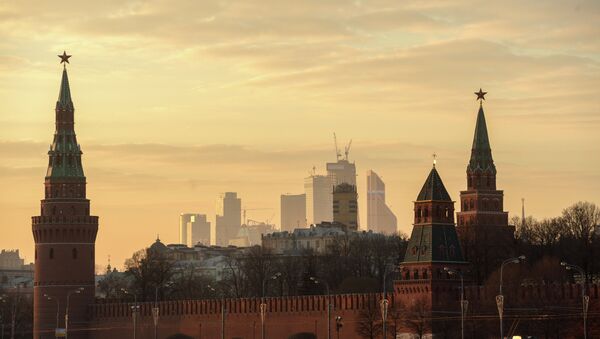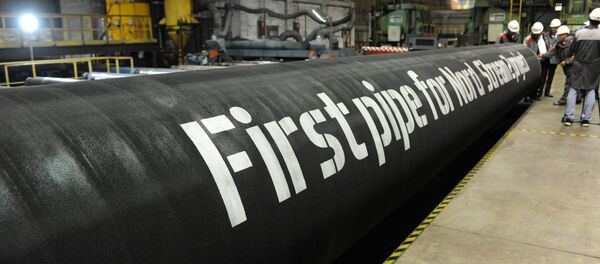Kremlin spokesperson Dmitry Peskov has described the new US sanctions on Russia as "unacceptable," however, noted that the restrictions imposed on Moscow have had a positive effect on the Russian economy despite also causing harm.
"The extra-territorial character of such laws is unacceptable, we are categorically against it," Peskov has stated, when asked to comment on the point in the US sanctions law, which includes the US authorities' obligations to check that people and companies from the list don't receive help from foreigners.
Peskov's statement comes after the US Treasury announced in a directive Washington had banned providing goods, services or technology for projects with Russia related to deepwater, arctic offshore or shale exploration or production.
The new ban relates to the projects that have the potential to produce oil in Russia, and involve any person "determined to be subject to this Directive or any earlier version thereof, their property, or their interests in property," according to the document.
READ MORE: US May Impose Anti-Russia Sanctions More Often Prior to Russian Elections
New US Sanctions Law
The aforementioned sanctions signed by the US president into law in August, being a part of the "Countering America’s Adversaries Through Sanctions Act," is the most far-reaching anti-Russia sanctions seen since 2014. Among other areas, it targets Russian energey projects with EU partners, including the Nord Stream-2 gas pipeline, which presumes the construction of a pipeline that will have an annual capacity of 55 billion cubic meters of gas.
The new pipeline, which is set to be launched in 2018, is planned to be laid along the existing Nord Stream pipeline route from the Russian coast through the Baltic Sea and on to a hub in Germany. Gazprom and OMV, along with France's Engie, Royal Dutch Shell, Germany's Uniper and Wintershal, are engaged in the project.
READ MORE: Contractors Confident They Will 'Overcome' US Sanctions Targeting Nord Stream-2
Recently, the US State Department published a list of almost 40 Russian defense and intelligence entities targeted by the expansion of sanctions. The list included the Federal Security Service (FSB), the Foreign Intelligence Service (SVR), the Main Intelligence Directorate of the General Staff of the Russian Armed Forces (GRU), as well as Rosoboronexport, Rostec and United Aircraft Corporation.




